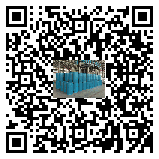Worry-free recoating: A full analysis of the core advantages of leveling agents that do not affect recoating
1. Advantages of coating process
Simplify the construction process
In the traditional coating process, if the leveling agent is not selected properly, it may cause many problems during
recoating, such as the incompatibility of the new coating with the old coating, and the old coating needs to be pre-treated
with complex methods, such as grinding and cleaning. Leveling agents that do not affect recoating can avoid these problems
and reduce unnecessary construction steps. For example, in the operation of automobile repair paint, after using this leveling
agent, the repaired part can be directly recoated without additional treatment, which greatly shortens the construction time
and improves work efficiency.
For some building exterior wall renovation projects with strict construction period requirements, simplifying the construction
process means that the project can be delivered faster and the impact on the surrounding environment and residents' lives can
be reduced.
Reduce construction difficulty
Ordinary leveling agents may change the surface properties of the coating, making it difficult for the new coating to adhere
evenly during recoating, and construction personnel need to have higher technical levels and experience to control
construction parameters. Leveling agents that do not affect recoating ensure the stability of the surface properties of the
coating and reduce the difficulty of construction. Even construction workers with relatively little experience can complete
high-quality recoating operations according to routine operations.
Taking furniture manufacturing as an example, new employees can quickly get started when using paints with non-recoating
leveling agents added, ensuring the consistency of coating quality and reducing the defective rate caused by the difficulty of
construction.
2. Advantages of improving coating quality
Ensure recoating adhesion
The leveling agent can form a good chemical bond or physical adsorption between the new coating and the old coating without
changing the original coating performance, thereby ensuring the adhesion after recoating. In the coating of metal products, after
multiple recoatings, the coating can still be tightly attached to the substrate without delamination or peeling, effectively extending
the service life of the product.
For some equipment that is exposed to harsh environments for a long time, such as outdoor power facilities, good recoating adhesion
can prevent the coating from falling off and protect the equipment from corrosion and damage.
Maintain the appearance quality of the coating
The use of non-recoating leveling agents can ensure that the coating surface is flat and smooth after each coating, without obvious
defects such as sagging and orange peel. In the painting of automobiles, the appearance of the car body can still maintain consistent
gloss and color uniformity after multiple recoating, which improves the market competitiveness of the product.
In the painting of high-end furniture, maintaining good appearance quality can meet consumers' pursuit of high-quality life and
increase the added value of products.
Improve the overall performance of the coating
It helps to form a uniform and dense coating structure, thereby improving the coating's water resistance, chemical corrosion
resistance, wear resistance and other properties. In the coating of chemical equipment, a uniform and dense coating can effectively
block the erosion of chemicals and protect the normal operation of equipment; in floor coating, the improvement of wear resistance
can extend the service life of the floor and reduce maintenance costs.
3. Advantages of cost control
Reduce material waste
Since it does not affect the recoating leveling agent, the quality of recoating can be guaranteed, reducing the waste of paint caused
by recoating failure. In the exterior wall painting of large buildings, if there is a problem with recoating, a large amount of paint may
need to be repurchased for rework, and the use of this leveling agent can effectively avoid this situation and reduce material costs.
In industrial production, the waste of paint not only increases costs, but also may pollute the environment. Reducing material waste
meets the requirements of sustainable development.
Reduce rework costs
The recoating problems that traditional leveling agents may cause will lead to a lot of rework, including labor costs, equipment use
costs, etc. After using the leveling agent that does not affect recoating, the rework rate is greatly reduced, thus saving rework costs.
For example, in ship coating, rework may take several days and a lot of manpower and material resources, and the application of this
leveling agent can significantly reduce the occurrence of this situation.
Extend the service life of the coating and reduce long-term maintenance costs
Good recoating quality and coating performance enable the coating to protect the substrate for a longer time, reducing the
frequency of repair and replacement of the coating. In the coating of infrastructure such as bridges and buildings, extending the
service life of the coating can reduce long-term maintenance costs and improve economic benefits.
4. Advantages for environmental protection and sustainable development
Reduce the emission of harmful substances
Some traditional leveling agents may contain harmful substances such as volatile organic compounds (VOCs), which will be released
into the environment during the coating and recoating process, causing harm to air quality and human health. The leveling agent
that does not affect recoating can reduce the VOC content and reduce the emission of harmful substances by optimizing the formula,
meeting the requirements of environmental protection regulations.
With the continuous improvement of environmental awareness, the use of environmentally friendly leveling agents helps companies
establish a good social image and meet consumers' demand for environmentally friendly products.
Promote resource recycling
Since the leveling agent ensures the feasibility of recoating, some old products can continue to be used through recoating and
renovation, reducing the production demand for new products, thereby saving raw materials and energy. In the coating of
electronic product shells, recoating and renovation can make the old shell look brand new, extend the service life of the
product, and promote the recycling of resources.


